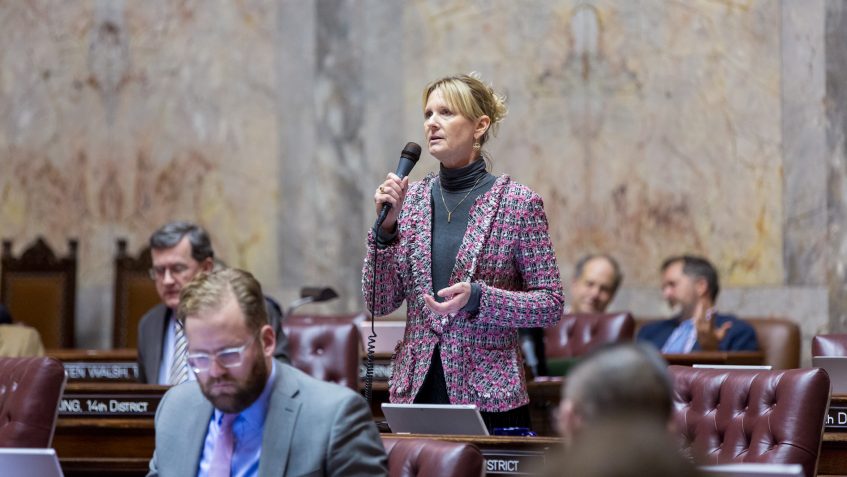Today, the Senate passed a bill I sponsored to protect the birthdates of public employees from hackers and other malicious actors. As you may have read recently, this legislation has caused a bit of a stir.
I want to be clear that, as an attorney who has practiced in public records for over 30 years, I am a strong supporter of government transparency.
But I also believe that it is our job as legislators to constantly evaluate if our system is working effectively and fairly, and when it isn’t, we’re obligated to take action.
In 1972, Washington passed the first public records act in the country. At that time, computers were in their primitive state and the public saw them mostly as the blinking round lights on episodes of Star Trek. But times have changed and our Public Records Act (PRA) needs to be examined in light of the world in which we now live.
In addition to the internet that you and I use in our daily lives, there is now something known as the “dark web” where, hidden from view, users illegally traffic all kinds of information. From what I hear law enforcement officials at all levels of government say, the “dark web” is not a place where you want your personally identifying information (PII) to be found. Yet right now the state offers up the most sought-after data trafficked on the dark web on a silver platter.
I have been interested in protecting this information since my kids started using the internet nearly 20 years ago. Having served on the General Government & Information Technology Committee when I was in the House of Representatives and now serving on the Board of WaTech, which operates the state’s core technology infrastructure, I routinely hear from cybersecurity experts about the dangers posed to our state by cyber-attacks of all kinds.
While I am confident in the infrastructure we’ve put in place to protect Washingtonians, including state of the art software and computer equipment designed to thwart hundreds of thousands of attacks a minute, the truth is that there is no way to protect all PII with 100% certainty. Especially when the birthdate of every public employee is available with a simple public records request.
But the reasons to pass Senate Bill 6079 don’t end there.
During public testimony, we heard from state employees who work for the division of child support that they receive three or four threats to themselves or their colleagues every month. I’ve also heard about a teacher who had left an abusive domestic relationship only to learn the hard way that, thanks to the PRA, her violent ex-boyfriend legally obtained her birthdate. With that information, he found her address from other sources.
The threat of individuals abusing the public records act to procure PII and using it to inflict physical or emotional pain against public servants doing honest but difficult work is real and unacceptable.
I empathize with some of the concerns brought forward by journalists worried about their ability to access information important to their investigations. Hoping to address these concerns, our caucus introduced an amendment that would continue to allow journalists the access they need to investigate stories involving public employees. But due to procedural roadblocks, we decided to move the bill forward to the House without amendment so we can continue working on this critical legislation over there.
The real stories about real people whose physical, emotional and economic security is put at risk because the state has not yet closed this avenue within the PRA are the reasons I sponsored the bill and why I will work hard to see it enacted into law.
And just to be sure I was doing the right thing, I asked myself one simple question: would I want my child’s birthdate to be disclosed by the state simply because they work for the government? No, and I’d bet neither would you.
For additional perspective on the issue, be sure to read the recent letter to the editor in the Bellevue Reporter from Becky Turnbull, an employee at Bellevue College:




